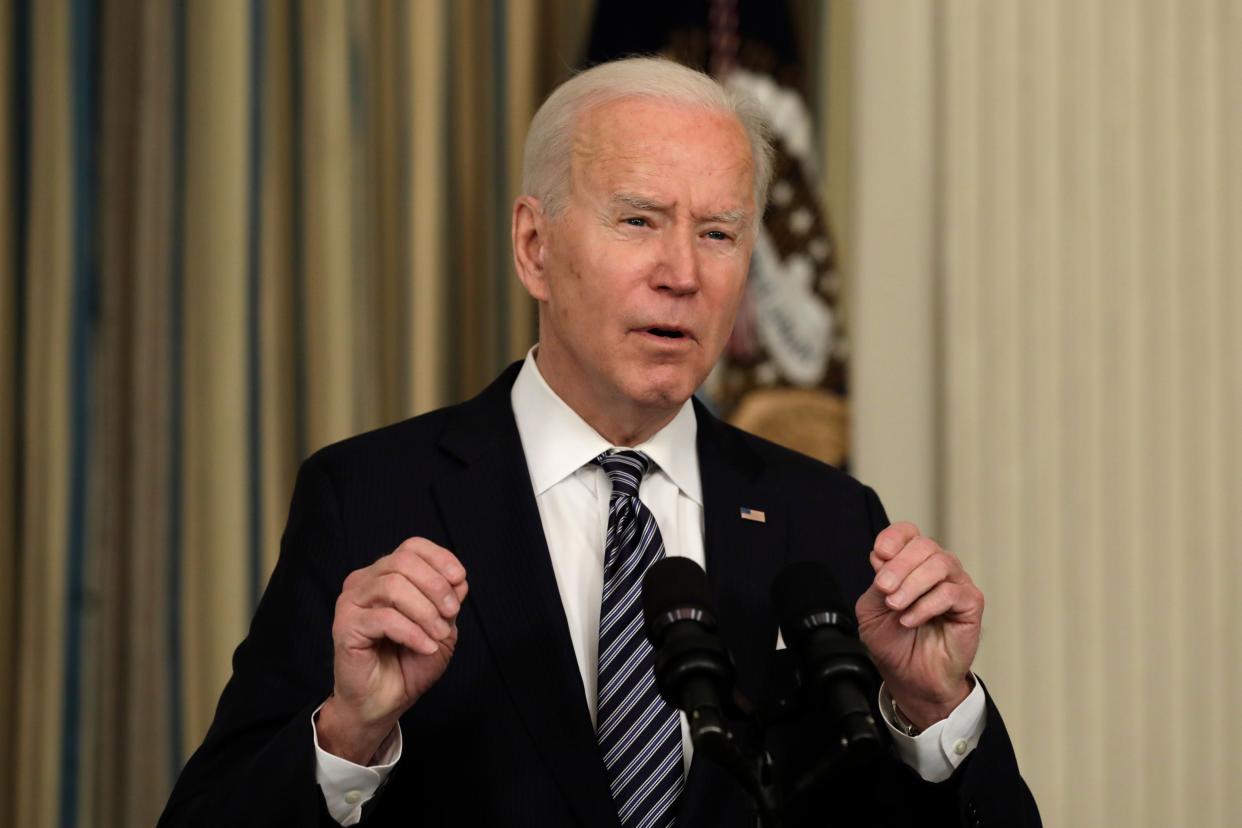Biden to send 4 million AstraZeneca vaccine doses to Canada and Mexico

The Biden administration has agreed to send surplus AstraZeneca vaccine doses to Mexico and Canada, according to senior administration officals.
The country plans to send 2.5 million Covid-19 vaccine doses to Mexico and 1.5 million to Canada.
Discussions have been taking place between the three countries about the vaccine doses, and Mexico could reach an agreement with the United States as early as Friday.
“I’d say we’ve made good progress, but the details, figures, provisions, won’t be known until Friday,” Mexican foreign minister Marcelo Ebrard told reporters on Tuesday morning. “We requested as many [AstraZeneca doses] as possible.”
First and foremost, the Biden administration has vowed to prioritise Americans in its mass vaccination campaign. Already the administration has purchased 800 million vaccine doses between Moderna, Pfizer, and Johnson & Johnson to get the public vaccinated.
But the president has also revealed his commitment to assisting other countries in vaccinating their residents.
Read more:
Biden to hit vaccine target month ahead of schedule- follow live
Outrage as 172 Republicans vote to oppose Violence Against Women Act
US Army refuses to return medal to soldier Trump pardoned over murder
If the US were to reach an agreement with Mexico and Canada to send AstraZeneca doses, it would be the first formal commitment from the country to directly send Covid-19 vaccines. Both Mexico and Canada have struggled to vaccinate their residents as swiftly compared to the US.
On Wednesday, White House Press Secretary Jen Psaki confirmed that the US received requests from Canada and Mexico about sharing surplus vaccine doses. But she provided no details on if the requests would be approved.
The US currently has millions of AstraZeneca vaccine doses in a stockpile being unused. The vaccine doses were not yet available to the American public because AstraZeneca has yet to apply for emergency use authorisation from the Food and Drug Administration (FDA). Clinical trials were underway in the US for the vaccine.
AstraZeneca was approved in both Mexico and Canada, which was likely why the US was considering striking a deal between the two countries.
Senior officials in the Biden administration told CNN that they were considering a deal where the US gives AstraZeneca vaccine doses to the two countries now with the understanding that Mexico and Canada could supply the country with excess vaccine doses in future months.
The news of the vaccine agreement between the US, Canada, and Mexico comes as the European Medicines Agency has backed the continued usage of the Oxford/AstraZeneca vaccine in Europe following some concerns about safety.
“The committee has come to a clear scientific conclusion,” Emer Cooke, executive director of EMA said in a statement released on Thursday.
“This is a safe and effective vaccine, its benefits in protecting people from Covid-19 with the associated risks of death and hospitalisation outweigh the possible risks. The committee also concluded that the vaccine is not associated with an increase in the overall risk of thromboembolic events or blood clots.”
Eighteen countries across Europe have suspended the use of the vaccine following reports of five cases in the UK of people developing cerebral sinus vein thrombosis, or blood clots in the brain, after receiving the jab.
The Medicines and Healthcare Products Regulatory Agency, a UK health watchdog, said those five cases amounted to one in a million vaccinations, and could happen naturally.
The agency has insisted the vaccine was safe and shows no indications that it forms blood clots in those who receive a dose.

